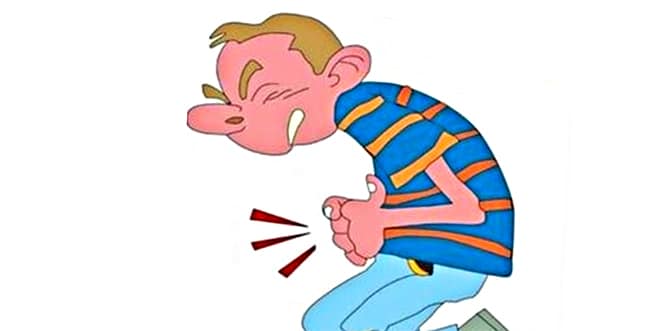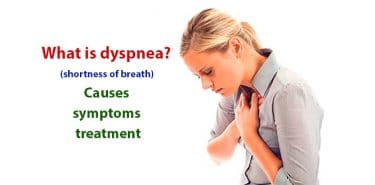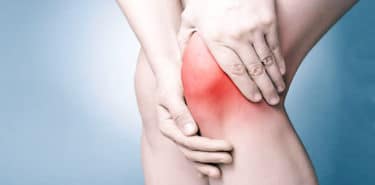In constipation, bowel movements slow down and stool hardens. The most common symptoms are difficulty in defecation and bloating. Still life, intense stress, malnutrition, low drinking, some medications and some diseases can cause constipation. Temporary constipations can heal with a simple treatment at home. Over-the-counter laxatives can help. In severe constipation, doctor may recommend more potent drugs. Enema is another option. In spite of these applications, if constipation persists or if there are abrupt symptoms such as blood in the stool, see a doctor immediately. Because constipation can also be a symptom of a serious illness such as cancer.
Table of Contents
What is constipation?
Constipation is a difficulty in defecation due to slowing of bowel movements. Defecating two or fewer times a week is considered chronic constipation. But everyone’s metabolism is different. Therefore, the number of defecation may not be sufficient for diagnosis. Because sometimes defecation can be painful and difficult, even if the person often excretes.
People of all ages, including babies, may experience this problem from time to time. It is not a disease, it is an important symptom of a problem or disease. (1)
Types of constipation
- Chronic constipation: If symptoms persist for more than 3-6 months, constipation may become chronic. It is more common in the elderly.
- Acute constipation: Symptoms may develop quite fast, in a few hours or days. It may be a precursor to a serious illness or problem.
Causes of constipation
When the stools stay too long in the column, the absorption of water increases, hardening the stools. The main causes of this condition are as follows: (2)
False and unhealthy nutrition
- Fiber-free nutrition: Fibrous foods have an important role in regular functioning of the large intestine and preventing the drying of digestive waste.
- Unconscious diet: Constipation may develop due to unconscious slimming diets with decreased portions of fat, fiber and fluids.
- Low liquid consumption: Insufficient water/liquid consumption can cause stools to harden and dry, resulting in constipation.

Nutrients that trigger constipation
- Fast-food and fries
- Processed cereals such as bread, cakes, cookies
- White rice and pasta etc.
- Cow’s milk and cheese
- Ice cream
- Sweets, Chocolate
- Caffeine, Alcohol
- Unripe (green) bananas
- Red meat
Gluten-free foods increase the likelihood of constipation, especially in people who are allergic to gluten, such as Celiac disease.
Changes in daily-life routine
- Inactivity: One of the most important reasons for constipation. The activity of the intestines depends on the increase of individual’s his/her vital activities.
- Stress: Having a stressful period can trigger constipation
- The habit of postponing toilet needs: This habit reverses bowel movements through reflexes, causing feces to return to the large intestines. Thus, the water of the non-disposable feces decreases and then dries; the problem of constipation begins.
- Travels: Long periods of inactivity in travels, environmental-physical conditions at the places of destination and/or change in eating habits may trigger constipation by disrupting the intestinal rhythm.
- Eating more: Go out of the habit by eating more than usual.
- Aging: Chronic constipation problem occurs more frequently with decreasing bowel movements in old age.
- Pregnancy
Some drugs
- Acid removers containing aluminum and calcium
- Antispasmodic relaxants
- High blood pressure medications, containing calcium and diuretic
- Iron supplements
- Drugs used in the treatment of Parkinson’s
- Powerful Pain Relievers
- Some antidepressants and psychiatric drugs
- Some neurological drugs such as anticholinergics, anticonvulsants
- Herbal supplements
- Weight loss pills
- Unnecessary laxative use
Some diseases
- Diabetes,
- Obesity,
- Hypothyroidism,
- Depression and anxiety
- Alzheimer’s and Parkinson’s
- Multiple sclerosis
- Restless bowel syndrome
- Anatomical problems in the digestive system; gradual enlargement of the rectum and poor coordination of the pelvic and anal muscles
- Diseases causing intestinal inflammation such as diverticulitis or Crohn
- Celiac disease
- Tumor formation causing intestinal obstruction; cancer
- Spinal cord and brain injuries
- Electrolyte imbalances such as calcium and so on
Occasionally, severe constipation that is not related to a disease can result from Lazy Bowel syndrome or bowel obstruction.
Symptoms of constipation
- Less than three bowel movements per week
- Hard, dry or lumpy stools
- Difficult and painful defecation
- The feeling that all feces do not come out
- Swelling
- Mild nausea
- Mild pain or cramping
These symptoms relieve with the improvement of bowel movement. Constipation may become chronic if early measures are not taken.
When is constipation dangerous?
As long-term or sudden constipation may indicate serious health problems, seek immediate medical attention if there is:
- Hard, dry defecation
- Pain during defecation
- Bleeding from the rectum
- Blood in stool
- Permanent cramp-pain in the abdomen
- Gas failure, excessive bloating
- Vomiting
- Fever
- Backache
- Undesirable weight loss
Diagnosis of constipation
- Constipation examination is performed according to the information provided by the person (symptoms, medical and family history, etc.). Blood pressure and fluid loss can be assessed in physical examination and rectal examination can be done by finger.
- Blood, feces and urine tests can be performed to determine the underlying cause.
- Colonoscopy can be performed to investigate the possibility of cancer and so on.
- Colorectal transit time study shows the passage time of feces through the colon.
- Anorectal function tests measure pressure-muscle functions in the rectum and anus. (3)
Treatment of constipation
Constipation medications
There are many varieties of over-the-counter medications for constipation such as laxatives, which help to remove feces from the intestines. (4)
- Fiber supplements (Metamucil and Citrucel): They help keep water in the feces and swell in the water to stimulate the natural contraction of the intestine. It is started with small doses and slowly increased.
- Osmotic laxatives (Magnesia milk, Miralax): They consist of salt and sugars that are less absorbed from intestines and soften feces by holding plenty of water in colon.
- Stool emollients (Colace, Docusate): They absorb water from the intestines and moisturize the feces.
- Lubricants such as mineral oil: They make stool move more easily from the column.
- Stimulants (Correctol, Dulcolax, Senokot): They are used only if constipation is severe and other treatments do not work. Some oral stimulants can activate the intestines in 6-8 hours. The suppository form takes effect in 15-60 minutes. It is used for a short time; longer use is possible under the supervision of a doctor.
If the problem of constipation persists despite laxative use, or if a restless bowel syndrome is diagnosed, the doctor may prescribe medication. Some of the prescription drugs include:
- Lubiprostone (Amitiza), linaclotide (Linzess) and plecanatide: It pulls water to the intestines and accelerates the movement of feces. It can regulate bowel movements if there is long-term constipation for no reason or restless bowel syndrome.
- Prucalopride (Resonol): It can move feces from the colon.
- Naloxegol and methylnaltrexone: If constipation is caused by severe pain relievers such as morphine, it reverses their effects on the intestine.
If you are taking an over-the-counter or prescribed medication that can cause constipation, the doctor may recommend that you quit it, change the dose, or switch to a different drug. Check with your doctor before changing or discontinuing any medication.
Biofeedback therapy for constipation
If the cause of constipation is a problem with the muscles in the pelvic floor, biofeedback (muscle retraining exercises) therapy may work. Relaxing pelvic floor muscles at right time when defecating may make the stool easier to pass. To measure muscle tension during biofeedback sessions, a special tube attached to an instrument is inserted into the rectum.
The instrument measures muscle tension and uses sounds or lights to help the patient understand when the muscles relax. Therapist guides the patient through exercises to alternately relax and tighten the pelvic muscles. (5)
Constipation surgery
Surgery is rarely used in chronic constipation. However, surgical intervention is an option if it causes obstruction, breech hernia or narrowing of the intestines. Surgeons who specialize in colon, rectum and anus diseases also offer surgeries where part of the colon is removed as an option to people whose stool has abnormally slow motion in the colon. Surgery for removal of the entire colon is rare. (6)
Home remedies for constipation
Sometimes simple measures can help you easily resolve the problem of constipation:
- Increase fiber intake: Daily fiber requirement is 25-35 gr. In addition to fruits (especially dry prunes) and vegetables, legumes and whole grain breads and cereals such as bran, oats can regulate bowel movements. Probiotics such as yogurt and kefir are intestinal friendly. Sudden increase in fiber content and probiotics may cause gas and bloating; therefore, the fiber intake should be increased slowly. (7)
- Consume plenty of water/liquid: 6-8 glasses of water per day prevent the hardening of stools and make their pass through the intestines easier. Drinking warm water, especially in the morning, soften the bowels if juice of a half lemon is added to it. In addition, light tea, pulp fruit compotes without sugar added, plum juice and herbal teas can be drunk.
- Change your lifestyle: Inactivity is one of the most common causes of constipation today. Brisk walking for even 30 minutes per day can regulate bowel movements. Exercise 4-5 days a week is the ideal.
- Use of laxatives: Auxiliary supplements such as laxatives may be particularly effective in resolving temporary constipation. However, due to side effects, do not use laxatives for more than 2 weeks without consulting a doctor.
What is enema and how is it performed?
Enema is a temporary treatment in constipation. In the enema, a liquid is sent to the rectum to empty the intestines. It can work especially in bowel obstructions due to feces.
In the enema procedure, the patient is usually placed on his left side with his knees bent. The solution at body temperature is sent to the enlarging rectum by enema tube. 2-5 min. then the discharge starts. Feces are thrown out with water or solution. If the enema is insufficient, the paramedic can use a gloved finger to remove the feces.
It may be necessary for the patient to drink a solution containing dissolved salt and polyethylene glycol which cleanses the digestive tract. This treatment can be supplemented by fiber feeding and laxative.
Constipation in pregnancy
Constipation is the most common symptom during pregnancy and may develop due to several factors. These are:
- Pressure of uterus on intestines
- Hormonal changes
- Changes in food and fluid intake
- Iron supplements.
Constipation during pregnancy can be resolved by home remedies described above. Also, consuming plenty of raw or steamed fibrous vegetables-fruits, gaining the habit of eating less but often will help. A light exercise should also be added to the daily routine. In severe constipation, herbal supplements and laxatives should not be used without consulting the doctor. (8)
Complications of constipation during pregnancy are cracks in the lining of the anus and painful hemorrhoids. After birth, these disorders can be treated and the bowel rhythm may return to normal routine.
Constipation in children
Constipation is common in infants and children, and is usually temporary. A constipated child has sparse bowel movements and/or hard, dry stools. The main causes are poor diet, changes in diet, early toilet training and fear of using the toilet. In particular, the cause in infants may be inadequate breast-feeding.
Symptoms of constipation in children are similar to adults and can be mitigated by promoting a fiber-rich diet and water consumption. It is also possible to treat it with laxatives or suppository with the consent of the doctor. In addition, children should not be kept under pressure in toilet training and should be left alone. They should be encouraged when they use the toilet. (9,10)
What happens if constipation is not treated?
- Structural fractures-diseases such as anal cracks, hemorrhoids, breech hernias, and breech sagging may develop and may prevent defecation.
- The occurrence of these conditions triggers further constipation.
- Prolongation increases the severity of these diseases, and this condition enters a vicious circle over time.
- If constipation lasts more than 3 weeks and is accompanied by other symptoms, see a doctor immediately. For example, blood in the feces and unwanted weight loss may be the harbinger of colorectal cancer.
Suggestions for constipation
- Start a balanced diet with plenty of fiber.
- Drink at least 8 glasses of water per day.
- Do not consume coffee and soft drinks until your bowels are normalized.
- Increase your mobility with daily activities. If you can’t do any exercise, at least do not use elevators and escalators, but walk to your destination in close distances, do not get on the vehicle.
- Don’t put off your toilet needs. Once the rectum is in use, use the toilet immediately and allow enough time for your bowel to function without haste.
- Learn breathing techniques that can manage your stress.
- Increase movement and water consumption as much as possible on long-term trips, use appropriate laxative or fibrous supplement medications recommended by the doctor throughout the trip.




